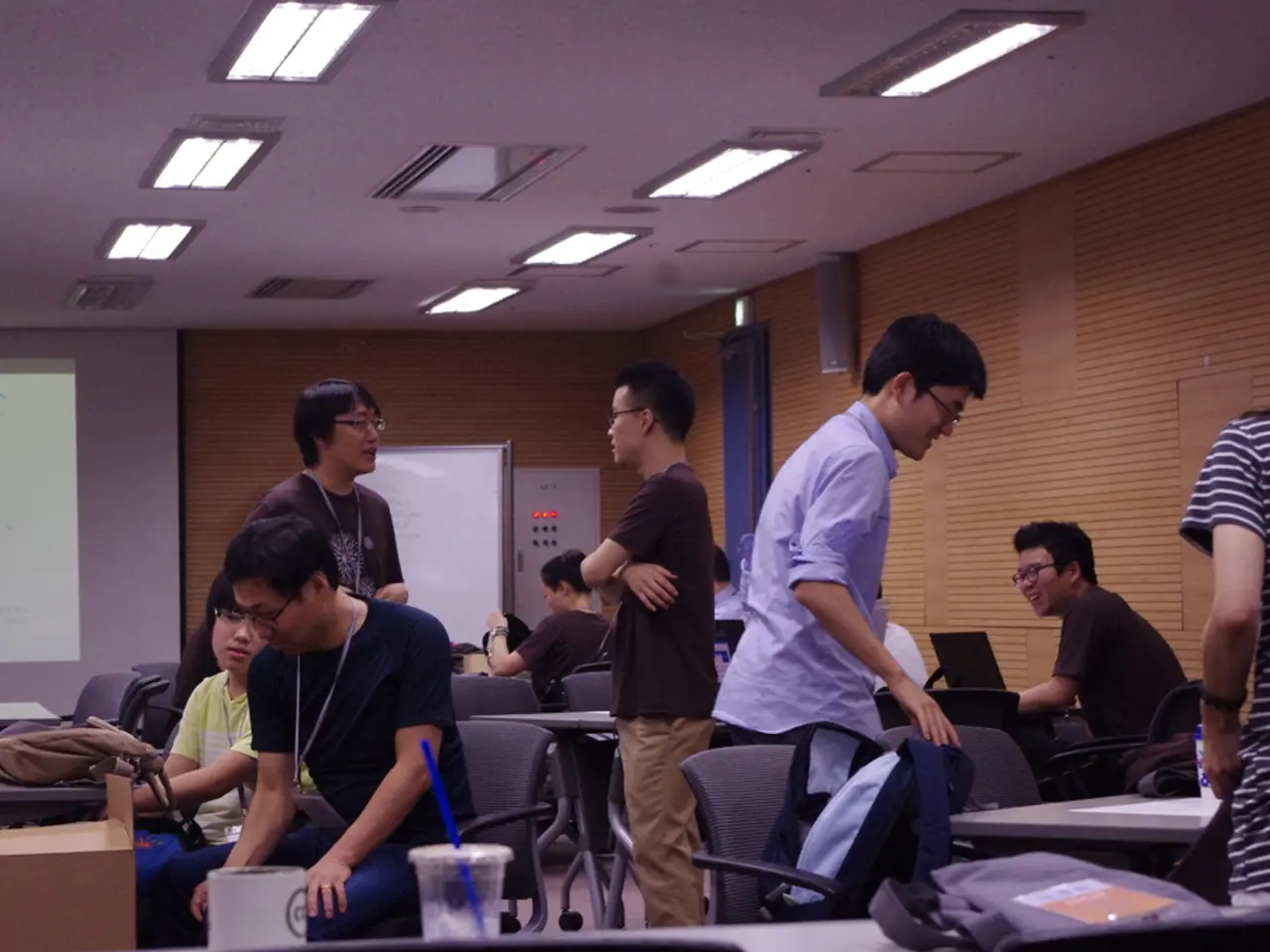Study Guide Essentials for English Language Learning Sessions
Learning English as a Second Language (ESL) requires a strategic approach that goes beyond passive activities such as reading and listening. To truly master the language, active participation is essential, including conversation, writing, and engaging exercises.
The Importance of Progress Tracking
Tracking progress in ESL study sessions is vital for maintaining motivation and adjusting strategies. It allows learners to verify the effectiveness of their study strategy and make informed modifications. This can be achieved through maintaining journals, using online progress charts, or regular self-assessment tests.
The Role of Technology
Technology plays a significant role in ESL learning, with software programs designed to help learners systematically revisit materials in well-timed intervals. These programs can offer personalized feedback and adapt to the learner's needs, making the learning process more efficient.
Setting Clear Learning Objectives
The first step in any effective ESL study session is setting clear learning objectives. This involves defining what you intend to achieve. By doing so, learners can focus their efforts and measure their progress effectively.
Diversity in Learning Resources
Diversity in learning resources is crucial to maintain enthusiasm and enhance understanding. A diverse array of resources caters to different learning preferences, ensuring that every learner finds a method that suits them best.
Constructive Feedback
Constructive feedback from tutors or peers can help identify areas for improvement. It provides learners with valuable insights into their strengths and weaknesses, allowing them to focus on improving specific aspects of their language skills.
Effective Study Strategies
Effective strategies for organizing ESL study sessions include combining student-centered activities, balanced skill integration, and cooperative learning approaches. Some key strategies include:
- Small group discussions with rotating membership to encourage interaction and varied speaking practice.
- Inside/Outside Conversation Circles, where students practice academic language through structured question-and-answer sessions.
- Balanced integration of all four English skills (listening, speaking, reading, writing) by designing activities that combine these skills simultaneously.
- Use of visual aids, scaffolding, and hands-on activities to support comprehension and retention.
- Collaborative learning and study groups or classes where learners can practice speaking with real people, share resources, and receive peer and expert feedback.
The Role of Review
Review is an integral and often overlooked component of effective ESL study sessions. Consistent review helps reinforce learning materials, ensuring retention and comprehension. Translating previously learned material in a different context greatly aids memory consolidation.
In conclusion, succeeding in ESL requires a holistic approach that includes comprehensive learning, constant practice, and ongoing assessment. By incorporating these strategies into their study sessions, learners can effectively acquire English, improve their communication skills, and gain a deeper understanding of the English language and culture.
[1] Source: CALICO Journal, Volume 27, Number 3 (2010) [2] Source: TESOL Quarterly, Volume 47, Number 4 (2013) [3] Source: Language Teaching, Volume 47, Number 2 (2014) [4] Source: The Modern Language Journal, Volume 97, Number 4 (2013) [5] Source: Studies in Self-Access Learning Journal, Volume 7, Number 1 (2016)
- Beyond reading and listening, engaging in listening exercises can contribute significantly to ESL mastery, as they encourage active participation and reinforce correct pronunciation.
- A balanced lifestyle that includes time for fashion-and-beauty, food-and-drink, home-and-garden, relationships, pets, travel, cars, and education-and-self-development, can help multiple aspects of language learning, including improving communication skills and personal growth.
- Regular shopping trips can be seen as opportunities for ESL learners to practice their conversation skills and hone their skills in a real-world setting.
- Career-development and job-search often require a strong command of English, making skills-training sessions a valuable addition to ESL study plans.
- Personal learning journals can serve as valuable tools for tracking progress in ESL study sessions, providing insights into a learner's strengths and areas for improvement.
- Diversity in learning resources extends beyond entertainment, as it can play a vital role in enhancing understanding of ESL that caters to different learning preferences and styles.
- Constructive feedback is a powerful motivator, guiding ESL learners towards their objectives by identifying key skills they need to enhance for better language proficiency.
- Regular learning assessment tests can reveal the effectiveness of a study strategy, offering learners the chance to modify and refine their approaches for optimal language acquisition.






